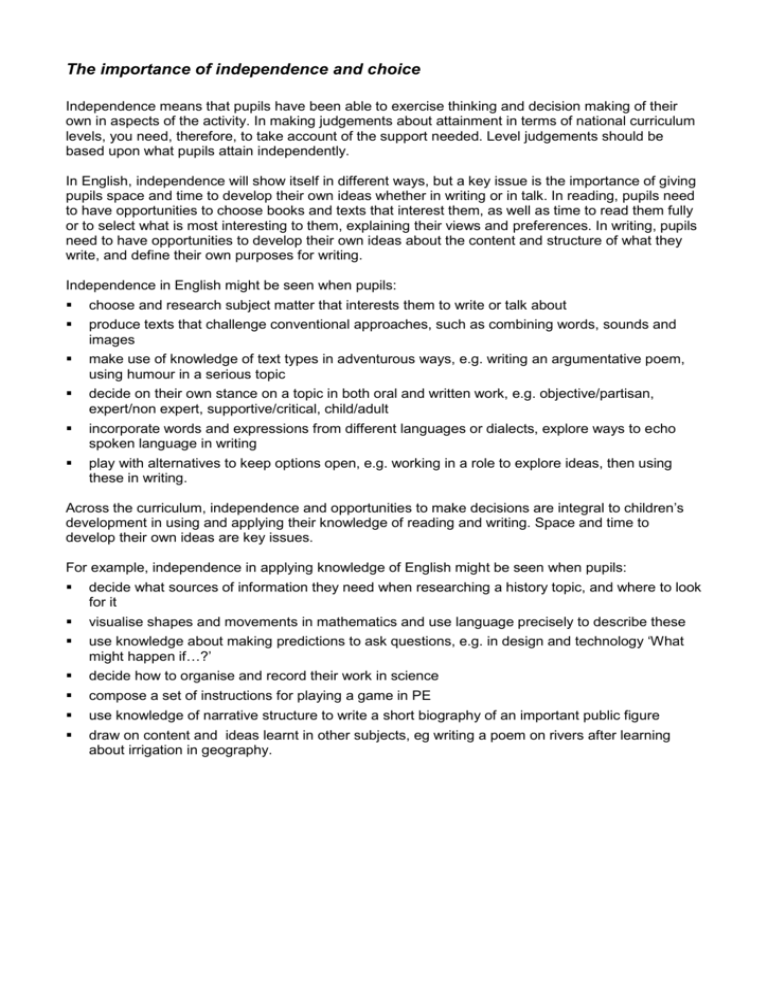Opportunities for planning
advertisement

The importance of independence and choice Independence means that pupils have been able to exercise thinking and decision making of their own in aspects of the activity. In making judgements about attainment in terms of national curriculum levels, you need, therefore, to take account of the support needed. Level judgements should be based upon what pupils attain independently. In English, independence will show itself in different ways, but a key issue is the importance of giving pupils space and time to develop their own ideas whether in writing or in talk. In reading, pupils need to have opportunities to choose books and texts that interest them, as well as time to read them fully or to select what is most interesting to them, explaining their views and preferences. In writing, pupils need to have opportunities to develop their own ideas about the content and structure of what they write, and define their own purposes for writing. Independence in English might be seen when pupils: choose and research subject matter that interests them to write or talk about produce texts that challenge conventional approaches, such as combining words, sounds and images make use of knowledge of text types in adventurous ways, e.g. writing an argumentative poem, using humour in a serious topic decide on their own stance on a topic in both oral and written work, e.g. objective/partisan, expert/non expert, supportive/critical, child/adult incorporate words and expressions from different languages or dialects, explore ways to echo spoken language in writing play with alternatives to keep options open, e.g. working in a role to explore ideas, then using these in writing. Across the curriculum, independence and opportunities to make decisions are integral to children’s development in using and applying their knowledge of reading and writing. Space and time to develop their own ideas are key issues. For example, independence in applying knowledge of English might be seen when pupils: decide what sources of information they need when researching a history topic, and where to look for it visualise shapes and movements in mathematics and use language precisely to describe these use knowledge about making predictions to ask questions, e.g. in design and technology ‘What might happen if…?’ decide how to organise and record their work in science compose a set of instructions for playing a game in PE use knowledge of narrative structure to write a short biography of an important public figure draw on content and ideas learnt in other subjects, eg writing a poem on rivers after learning about irrigation in geography. Opportunities for planning When planning writing, think about: the choices you will offer pupils, eg subject matter, genre, readership the support you will provide with any of these aspects. When reviewing work for assessment, concentrate on pieces where pupil choices are greatest and teacher support is minimal The PNS framework will help you to identify different types of extended writing across the curriculum. Use the grid to make a note of the writing you will teach and the LOs you will concentrate on in doing so. Subject English Science ICT Design and Technology History Geography Music Art and Design RE PHSE PE Citizenship Fiction writing LOs Poetry writing LOs Non-fiction writing LOs



![afl_mat[1]](http://s2.studylib.net/store/data/005387843_1-8371eaaba182de7da429cb4369cd28fc-300x300.png)




